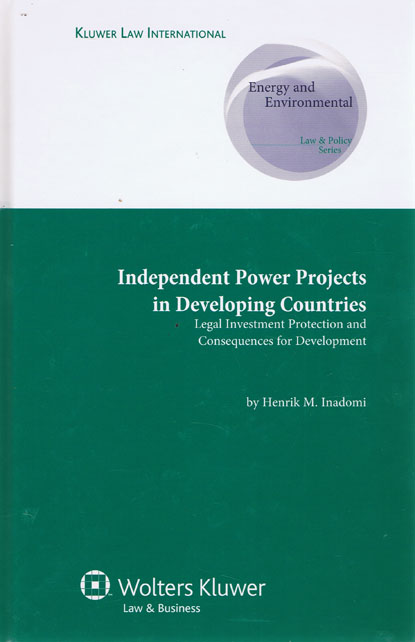
For developing countries, a stable and secure supply of electricity is crucial for industrial and commercial development, and for the well-being of their populations. Since the early 1990s, the main mechanism for constructing power generation facilities in developing countries has been the independent power project (IPP) model, where a foreign private entity enters into long term investment contracts with host government entities. This model has succeeded in attracting investment, but raises complex regulatory and contractual challenges in addition to public concerns.
This book – drawing on project contracts, available information about relevant contractual practices (including private interview sources), case law from disputes between investors and host countries, and literature commenting on the legal and economic aspects of the investment’s structure – analyzes the IPP model’s consequences for development.
The author argues that these consequences for development can be improved without detrimentally compromising the private sector’s willingness to continue to invest.
This book contains a hand-book approach to the investment protection measures within the traditional IPP model. However, with its in-depth analysis of the legal relationship among the various parties (an interlinked web of criss-crossing rights and obligations of contractual, corporate and financial natures, which cannot be viewed independently from each other), its detailed description of the IPP marketplace (consisting of host developing country buyers and multinational corporation sellers, adjudicated mainly through international arbitration) including how the conditions in this market compares to (and differs from) the assumptions of the basic competitive model, and its insightful observation of the ‘facts on the ground’, this book will find a ready welcome among practitioners, policymakers, and scholars in the fields of law, economics and development theory. Moreover, any lawyer will find food for thought here in the light the work sheds on the contractual role of risk allocation, the threat of moral hazard, the analysis of IPP caselaw, the ‘neutrality’ of international investment arbitration, and the suggestions for strategic legal argumentation during dispute resolution.